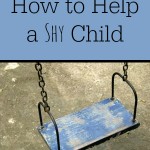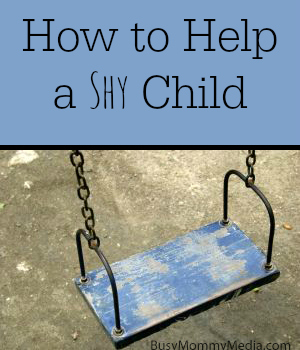How to Help your Child Deal with a Bully at School
 As a parent, sending your school-aged child off to school and trusting him to the care of his teacher can be emotional. Many parents worry about whether or not their child will make friends with the other kids in his class or be picked on by another child. Most of the time, these fears are unjustified and kids are free to enjoy a wonderful social and educational experience at school. Unfortunately, it is very likely that your child will have a run in with a bully at one time or another during his school career.
As a parent, sending your school-aged child off to school and trusting him to the care of his teacher can be emotional. Many parents worry about whether or not their child will make friends with the other kids in his class or be picked on by another child. Most of the time, these fears are unjustified and kids are free to enjoy a wonderful social and educational experience at school. Unfortunately, it is very likely that your child will have a run in with a bully at one time or another during his school career.
Signs that Your Child is Being Bullied
If your child is being bullied at school, he may or may not tell you about it. Bullies often threaten other children if they tell an adult what is going on and your child may be afraid to let you know what is happening at school for fear of being laughed at or physically hurt. As a parent, you know what normal behavior is for your child. Watch for any changes in behavior including, eating habits, sleeping habits, and mood. Try opening up the lines of communication by checking out a book from the library that has a bully in it or talk to your child about a time when you felt bullied at school when you were younger. Encourage your school-aged child to let you know if he ever feels bad about something that has happened at school.
Be an Advocate for Your Child
It is important for your child to know that you are his advocate if he ever needs anything. Never make your child feel bad if he shares something with you in an effort to get some help, even if it is a result of breaking the rules. There are natural consequences to most actions, and while you don’t need to let the rules slide, you do need to make sure that your child is comfortable coming to talk to you, even if he has made a mistake. Establishing a relationship of trust before your child experiences a problem with a bully at school can help you to resolve the problem much faster.
Why Do Kids Bully?
There are many reasons that kids bully, but it is often caused by low self esteem. Bullying gives kids a feeling of power that they may enjoy if they have low self worth or are struggling with other issues in their lives. Some kids may bully because that’s the way they have been treated in their own life. Kids that come from a home where they are regularly treated with disrespect, whether by consistent shouting or physical or emotional abuse, often believe that bullying is normal or like the feeling of control that they get by being on the other side of things. Whatever the situation, a child who bullies needs to be brought to the attention of school authorizes and parents so that the problem can be resolved before it escalates.
Helping your Child Deal with a Bully
In minor cases of bullying at school you should reassure your child that you will come up with a solution to the problem together. Tell your child that being bullied is not his fault and that he deserves to be treated with respect. Sit down and brainstorm with your child to come up with some a few good options to stop the bullying at school. Some possible solutions could be to walk away from the situation, hang out with groups of friends, or telling a teacher if your child feels afraid. This will teach your child some wonderful problem solving skills and increase his self confidence as he learns that he has the ability to do hard things. Be sure to monitor the situation and make sure your child knows that if he ever feels unsafe at school to immediately find a teacher or school administrator and ask for help. Reassure your child that you will find a solution to the problem together
Protecting your Child from a Bully
If your child is being bullied physically or it does not stop after your child takes measures to prevent the bullying then as a parent, you need to step in. Call your child’s teacher first to see if she is aware of the bully situation. If she is, ask her what is being done to keep your child safe. School guidance counselors can offer some wonderful advice when it comes to school bullies and may offer to talk to both your child and the bully, either separately or together. If you know the bully’s parents you may let them know what is going on. If you do not know the bully’s parents you can either ask for a meeting to be scheduled with them or ask the school to inform them of the problem.
Provide Support
Being bullied at school can damage a child’s self esteem and confidence. Work at home to build up your child’s self worth by doing activities together as a family that your child enjoys and provide plenty of verbal encouragement. Make sure your child knows that he has a support system both at home and at school and that many family members and friends want what is best for him.
Being bullied at school is a real problem that should not be ignored. Encourage your child to stand up for his right to go to school safely and get help from school administrators and teachers if the situation is not resolved.








This is a great article. I really wish more parents were aware of what going on at schools, no matter what kind of school their children attend. We dealt with this last year and I waited way too long to say something. This year I plan on being a better advocate for my daughter.
.-= Lis @ A Trucker Wife´s last blog ..Childhood Memories =-.